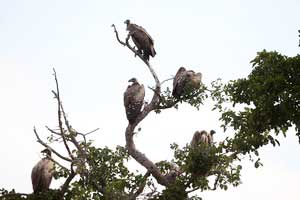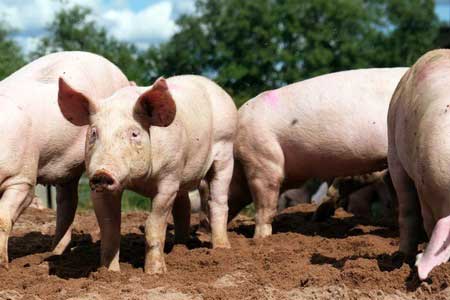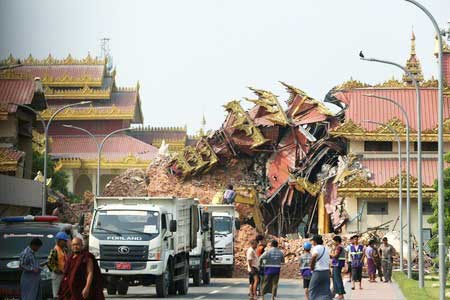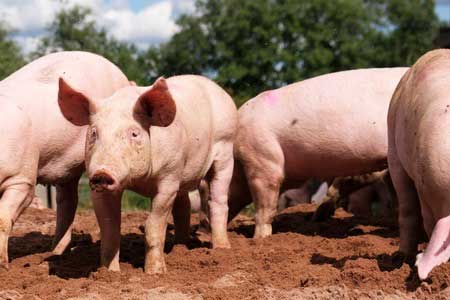The ecosystem services provided by vultures in the southern African region, including sanitation and pest control, are estimated at $1.8 billion annually, according to a report launched in the Kenyan capital on Tuesday.
Compiled by BirdLife International, a conservation lobby, the report focuses on Botswana, Zimbabwe and Zambia, emphasising the role of vultures in maintaining ecological balance and promoting human health.
The African continent is home to 11 species of vultures, with seven facing the risk of extinction and listed as vulnerable, endangered, or critically endangered on the International Union for Conservation of Nature's Red List of Threatened Species, according to the report.
Africa's vulture population, according to the report, plummeted by 80 to 97 per cent over the last five decades, and the main threats facing these majestic birds include poisoning and electrocution.
The report decries the widespread poisoning of vultures in southern Africa linked to cultural beliefs, with habitat destruction, climate change, and electrocution by high-voltage transmission lines threatening their survival.
In 2019, mass poisoning led to the death of 500 critically endangered vultures in Botswana, the report notes, emphasising that the iconic birds play a vital role in boosting tourism in the southern African region.
The report warns that failure to protect vultures could lead to about $47 million in losses to the region's economy annually, while conservation efforts could generate an estimated $30 million every year, Xinhua news agency reported.
Matthew Lewis, head of conservation in Africa at BirdLife International, said the decline of vultures on the continent is concerning. He emphasised the urgent need for key actors to step up their conservation efforts in the natural habitats and accrue myriad economic, health and ecological benefits for communities.
"This groundbreaking study on the economic value of vultures in the southern African region is crucial in advancing conservation efforts," Lewis said.
Leeroy Moyo, preventing extinctions programme manager at BirdLife Zimbabwe, a non-profit organisation dedicated to the conservation of indigenous bird species, underscored the importance of policy advocacy, community-focused awareness campaigns, and innovative conservation strategies to secure a sustainable future for vultures.








ASF kills over 1,050 pigs in 3 districts of Mizoram
An official from Mizoram's Animal Husbandry and Veterinary Department (AHVD) said on Friday that the department so far declared 34 localities in three districts as ASF-infected zones -- Lawngtlai, Mamit and Siaha.
Death toll rises to 1,644 following powerful earthquake in Myanmar
A total of 1,644 people died and 3,408 were injured, and 139 remained missing due to the powerful earthquake in Myanmar, said the Information Team of the State Administration Council on Saturday.
3.8-magnitude earthquake shakes Manipur, no casualties reported
A mild quake, measuring 3.8 on the Richter scale, shook Manipur’s Noney district and adjoining areas on Saturday, officials said.
Over 510 pigs killed due to African Swine Fever in Mizoram
An official from Mizoram's Animal Husbandry and Veterinary Department (AHVD) said that over 510 pigs died due to the ASF during the past two weeks in 13 villages and localities in two Mizoram districts -- Lawngtlai and Mamit.
India's per capita CO2 emissions among lowest in world as green energy capacity surges
India, which has emerged as the world’s 5th largest economy, also stands out as a country with one of the lowest per capita carbon dioxide (CO2) emissions globally as it balances growth with sustainability and switches to renewables at a rapid pace.
Amazing news, says PM Modi as MP earns another stripe for tiger conservation
Overwhelmed by another stripe which Madhya Pradesh earned the other day for its Madhav National Park, Prime Minister Narendra Modi posted on social media about the new recognition of the park as the state's ninth tiger reserve - a true sanctuary for these majestic creatures for many years.
Chamoli avalanche: Death toll climbs to 7; rescue ops for one remaining worker underway
The death toll in the Chamoli avalanche in Uttarakhand's Mana region has reached seven, with the rescue officials pulling out three more bodies on Sunday. Meanwhile, the search operation for one missing worker is still ongoing.
U'khand avalanche: 4 killed, 50 rescued; CM Dhami oversees rescue ops
Uttarakhand Chief Minister Dhami received latest updates on the rescue operations from Disaster Management and Rehabilitation Secretary Vinod Kumar Suman and District Magistrate of Chamoli, Sandeep Tiwari, late in the evening.